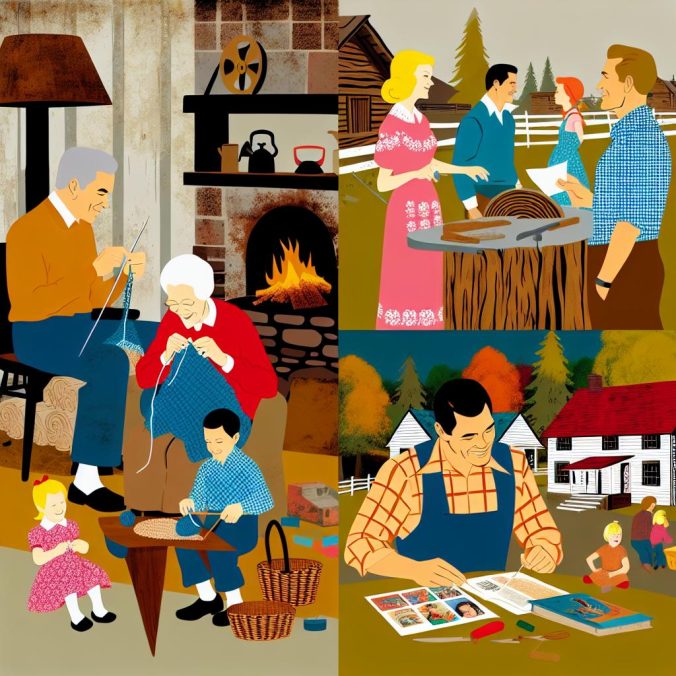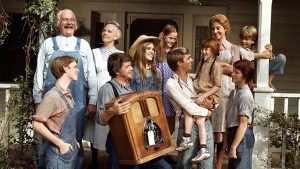Introduction
“The Waltons” was a prominent television series that became a cultural touchstone during its original run from 1972 to 1981. Chronicling the experiences of a rural Virginia family, the show was set against the historical backdrops of the Great Depression and World War II. Its narratives captivated American audiences during the 1970s with a focus on family values, community cohesiveness, and the spirit of perseverance amidst adversity.
Portrayal of Family Values
At the heart of “The Waltons” was its portrayal of strong family values, showing an idealized representation of familial bonds. This series exemplified themes such as love, sacrifice, and unity within the family structure. The show’s timing was significant, as American society at the time was witnessing substantial transformations. The portrayal of a close-knit family on “The Waltons” served as an anchor for viewers, offering them nostalgia and comfort amid shifting societal norms.
The Influence on American Ideals
“The Waltons” played an influential role in solidifying ideals surrounding the American Dream. The narrative emphasized that personal fulfillment could be achieved through hard work and integrity. Despite facing numerous economic hardships and social challenges, the unwavering commitment of the Walton family to their kin and community provided a scenic depiction of American life. This representation found a receptive audience in a period marked by social unrest and change, as it aligned with the broader cultural milieu and aspirations of many Americans.
Impact on Television Programming
The series also left a considerable impact on how television content was produced and consumed. It ushered in a renewed interest in family-oriented programming at a time when television was characterized by a diverse range of genres and storytelling methods. The successful formula of “The Waltons” demonstrated the viability of wholesome storytelling, encouraging television networks and producers to invest in similar family dramas in the following decades. This shift contributed to the emergence of other successful series centered around familial themes.
Cultural References and Legacy
“The Waltons” became a cultural icon, with its popularity leading to numerous references and parodies in popular media. These referenced its iconic status and reinforced its significance long after the series had concluded in 1981. The episodes and themes continued to influence modern media, finding resonance with audiences new and old. Frequent reruns of the series and occasional reunion specials have played a crucial role in keeping “The Waltons” embedded in public consciousness. Hence, the values it espoused continue to impact even contemporary audiences by way of these timeless narratives.
Conclusion
Over the course of the 1970s, “The Waltons” offered viewers a compelling depiction of resilience, familial bonds, and community spirit. Its cultural influence was profound, shaping societal attitudes and television programming in ways that still persist today. Through its enduring legacy, “The Waltons” stands as a key reference point in discussions on family dynamics, storytelling, and media representation. By remaining relevant across generations, it underscores the timeless appeal of narratives centered around fundamental human values.


